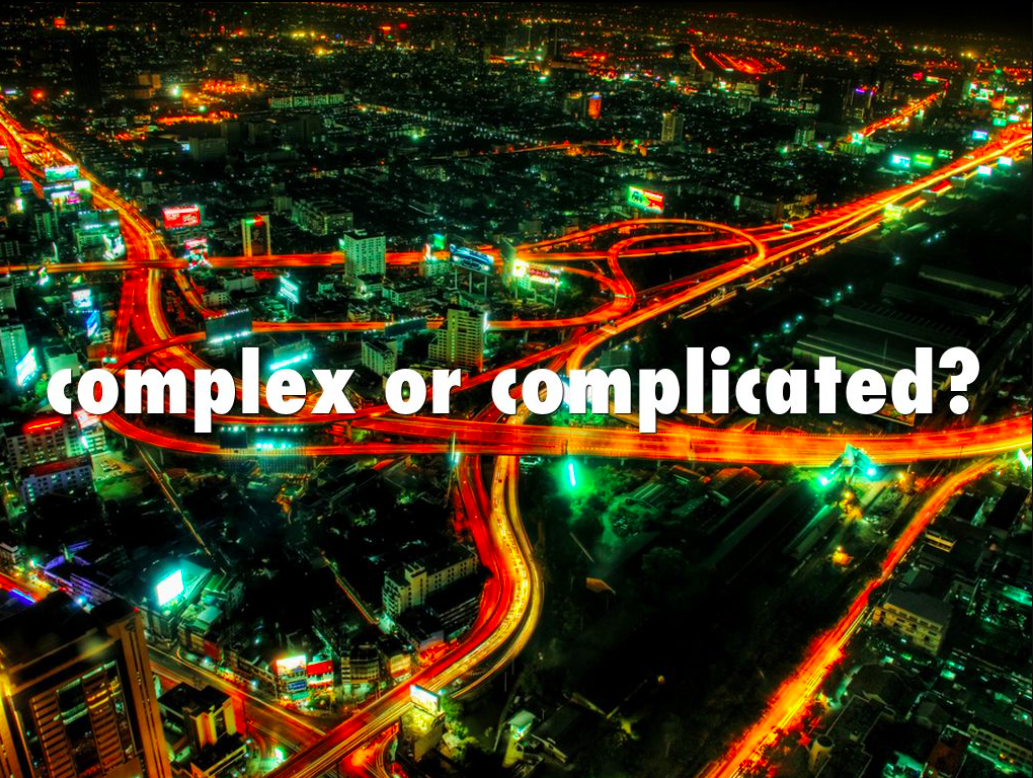Complex or Complicated?

(By John Atkinson)
I'm not usually a stickler for language. I like to find a way of getting things across that connects with people depending on their view of the world not mine. When you become picky over terms you risk imposing your mental view on others. So being conscious of that I'd like to explore the difference between 'complex' and 'complicated'.
To you, these words may mean different things to the explanations I give them or you may use different words to describe the concepts that I will expand. That's obviously ok! It is the thinking and the consequences of it that matter much more.
I'll begin with complicated. To me a complicated problem is intricate and has many facets. Lots of different things need to fit into place for the solution to arise. But that is the key point, there is a solution. We know how to do it. Or at least an expert somewhere in the world does. So when we face a complicated problem we need to find the expert from within our own networks or beyond and get them to tell us what needs to be done. We can therefore define the outcome we want and thus the steps necessary to reach it from here.
So how is 'complex' different? I think a complex problem has multiple constantly changing and interdependent variables. It becomes too hard to even agree on what the solution is that we want let alone how we get there. This is big 'P' and small 'p' political territory. It is contested space. It also really hard to work with, particularly when a public, press or perceived pressure exists to name the solution. 'Where next for the NHS?' or 'What is the future for councils?' are complex problems. For some those organisations needn't exist, for others they are crucial.
Because complexity is so hard we tend to deny it. We create complicated solutions to complex dilemmas. We fool ourselves that if we were smarter, or just had that bit more information, we could formulate the correct response. We seek to create 'evidence-based policy' that assumes there is an known and agreed solution against which we can test our effectiveness.
Instead we need to become more comfortable with uncertainty. This means learning to lead and work in environments where we cannot be the technical expert and there is no expert to be hired. Our expertise must grow in learning how to work with people and circumstances that are beyond our expertise. In so doing we will find that we must subordinate our own ego in the service of a better future. For most of us, that is a difficult challenge and at the heart of learning what it means to really lead.